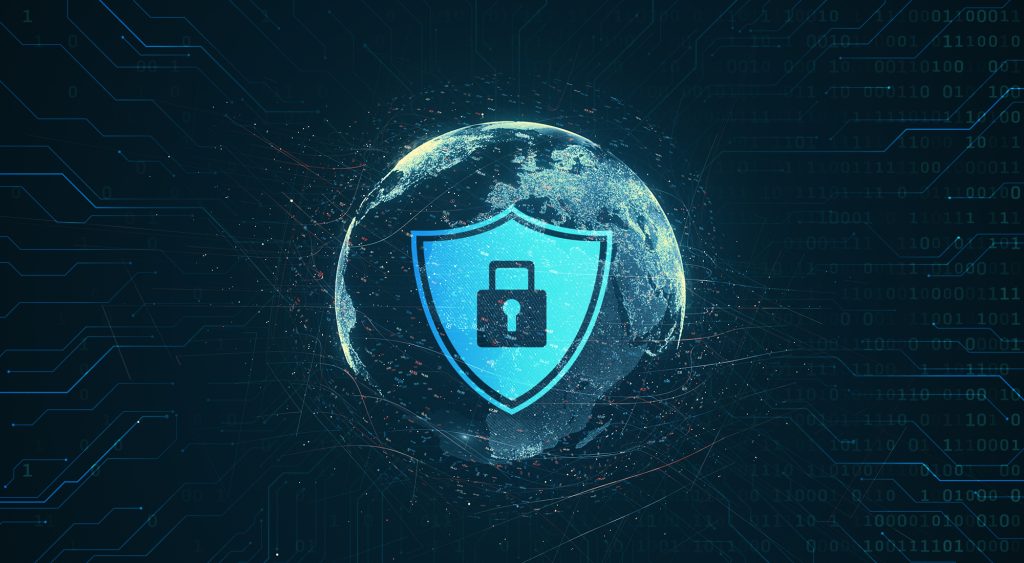
Cybersecurity is one of the most dynamic and rapidly growing fields today, essential for protecting data and digital assets across industries. This guide will walk you through various career paths, skills needed, and strategies to excel in cybersecurity.
Understanding Cybersecurity as a Career Field
Why Cybersecurity is in Demand
The demand for cybersecurity professionals is higher than ever. With businesses relying on digital systems, the risk of cyber threats has increased dramatically. Cybersecurity experts help defend against attacks that can compromise sensitive data and disrupt operations. Professionals in this field play a crucial role in maintaining trust in digital services, from e-commerce to healthcare.
Key Roles and Responsibilities
Cybersecurity roles cover a wide range of responsibilities, from securing networks to developing protocols that protect against potential threats. Job roles may involve identifying vulnerabilities, monitoring systems for breaches, and implementing strategies to prevent future attacks. Each position requires a unique blend of technical and analytical skills, suited to various stages in a cybersecurity career.
Essential Skills Needed for Cybersecurity Success
Technical Skills
To succeed in cybersecurity, professionals need strong technical skills. These include a deep understanding of networks, encryption methods, and programming languages such as Python, C++, and Java. Familiarity with tools like firewalls, intrusion detection systems, and SIEM (Security Information and Event Management) platforms is also crucial.
Soft Skills
Besides technical knowledge, cybersecurity professionals benefit from strong soft skills. Problem-solving abilities, attention to detail, and effective communication are all essential. Cybersecurity often involves complex problem-solving and teamwork, requiring professionals to communicate risks and strategies clearly to both technical and non-technical audiences.
Common Career Paths in Cybersecurity
Entry-Level Roles
Starting positions in cybersecurity often include roles such as Security Analyst and Junior Penetration Tester. These roles focus on monitoring systems, analyzing potential vulnerabilities, and supporting senior staff in defending against threats. Entry-level professionals typically work under the supervision of experienced team members, providing a foundation of hands-on experience in real-world environments.
Intermediate Roles
At the intermediate level, roles such as Security Consultant and IT Auditor become available. These positions often involve more specialized skills and a deeper understanding of risk management. Intermediate professionals may work independently on projects, assessing company systems for security gaps and developing recommendations to improve defense measures.
Advanced Roles
Advanced cybersecurity roles include positions like Cybersecurity Architect and Chief Information Security Officer (CISO). These roles involve managing teams, defining security strategies, and implementing complex systems to safeguard data. Senior professionals in these roles oversee security operations, ensuring that organizational strategies align with the latest cybersecurity trends.
Steps to Start and Grow Your Cybersecurity Career
Gaining Certifications
Certifications are essential in cybersecurity. Credentials like CompTIA Security+, Certified Ethical Hacker (CEH), and CISSP are recognized globally, helping professionals validate their skills. Each certification represents a specific level of expertise and can enhance job prospects.
Building Experience
Experience is key in cybersecurity, whether through internships, entry-level roles, or personal projects. Hands-on practice with network security, penetration testing, and other tools builds valuable skills. Many successful professionals use simulation platforms or labs to develop and refine their technical abilities.
Networking and Community Involvement
Building a network within the cybersecurity community opens doors to mentorship, job opportunities, and ongoing education. Conferences, online forums, and local meetups are excellent ways to connect with professionals. Staying engaged with the community keeps you updated on the latest threats and defense strategies.
Tips for Success in Cybersecurity Careers
To thrive in cybersecurity, continuous learning is crucial. This field evolves rapidly, with new threats emerging every day. Cybersecurity professionals must stay updated on the latest technologies, regulations, and attack methods. Developing both technical expertise and critical soft skills will help you grow in this high-demand industry.
Tips for Success in Cybersecurity Careers (continued)
Cybersecurity is not just about defending systems; it’s also about understanding attackers’ mindsets. Staying ahead in this field requires curiosity, resilience, and a willingness to think like a hacker. Many professionals hone their skills by participating in capture-the-flag (CTF) competitions and engaging with online cybersecurity labs, which provide a safe environment to practice real-world problem-solving.
Keeping up with industry developments, whether through cybersecurity news sites, blogs, or webinars, can also be invaluable. Following experts and industry leaders on social media platforms like Twitter and LinkedIn provides insights into the latest cybersecurity trends and threats, as well as career opportunities.
Another tip for success is to seek mentorship. Many successful cybersecurity professionals have benefited from mentors who helped them navigate the complexities of the field. Mentors can provide career guidance, technical insights, and advice on how to approach specific cybersecurity problems.
Lastly, don’t underestimate the value of a well-rounded knowledge base. Cybersecurity intersects with many fields, including legal, compliance, and business operations. Understanding these aspects can set you apart from others and position you for more strategic roles.
Additional Resources for Building a Cybersecurity Career
As you dive deeper into a cybersecurity career, taking advantage of educational resources can accelerate your growth. Below are some recommended resources for various learning needs and skill levels:
- Online Courses and Tutorials
Platforms like Coursera, edX, and Udemy offer cybersecurity courses ranging from beginner to advanced levels. Many of these are taught by industry experts and provide practical, hands-on training. Some popular courses include “Introduction to Cybersecurity” by Cisco on Coursera and “CompTIA Security+” on Udemy. These courses often allow you to earn certifications, which are valuable in the job market.

- Certifications
Cybersecurity certifications validate your skills and signal to employers that you have specialized knowledge. For beginners, certifications like CompTIA Security+ or Certified Information Systems Auditor (CISA) are great starting points. For more advanced professionals, Certified Information Systems Security Professional (CISSP) and Certified Ethical Hacker (CEH) are respected credentials. Certifications not only improve your job prospects but can also lead to higher salaries.
- Books and Publications
Books like “The Cybersecurity Playbook” by Allison Cerra and “Hacking: The Art of Exploitation” by Jon Erickson provide both theoretical insights and practical strategies. Additionally, subscribing to industry publications like Cyber Defense Magazine or Dark Reading keeps you informed about new cybersecurity threats, technology updates, and industry trends.
- Cybersecurity Labs and Practice Platforms
Practice platforms such as Hack The Box, TryHackMe, and Cybrary offer hands-on labs that simulate real-world hacking and defense scenarios. These resources allow you to test and refine your skills in a controlled, safe environment. Many professionals use these platforms to build expertise in penetration testing, network security, and vulnerability assessment.
- Professional Associations and Conferences
Joining organizations like (ISC)², ISACA, and SANS Institute can connect you with a broader community and provide access to valuable resources, including certifications, networking opportunities, and professional events. Attending cybersecurity conferences like Black Hat, DEF CON, and RSA Conference can also offer insights into the latest technologies and connect you with leaders in the field.
The Future of Cybersecurity Careers
With the ongoing evolution of technology, cybersecurity is expected to remain a high-demand field with promising career prospects. Emerging technologies such as artificial intelligence (AI), machine learning (ML), and Internet of Things (IoT) introduce new vulnerabilities that require specialized cybersecurity solutions.
In the future, new roles may emerge, focusing on fields like cloud security architecture, AI-powered security, and blockchain security. As cybersecurity threats become more sophisticated, companies will need professionals who can not only respond to attacks but also anticipate and proactively address potential security issues.
The rise of remote work also creates new security challenges, with companies increasingly relying on cybersecurity professionals to secure remote networks and devices. As a result, roles such as Endpoint Security Specialist and Remote Security Analyst are expected to grow in demand.
Closing Thoughts
A career in cybersecurity is both challenging and rewarding, with numerous opportunities to make a meaningful impact. From defending critical infrastructure to protecting individuals’ privacy, cybersecurity professionals play a crucial role in today’s digital society.
Whether you’re drawn to hands-on technical roles or aspire to take on leadership positions, a career in cybersecurity offers a path for everyone. By building the right skills, staying informed about industry trends, and connecting with the cybersecurity community, you can achieve long-term success and help create a safer, more secure digital world.
Embrace the learning journey, remain curious, and be persistent. The cybersecurity field is vast, but with dedication and the right resources, you’ll find a pathway that aligns with your strengths and ambitions.
Cybersecurity isn’t just a job; it’s a commitment to protecting our digital future.
Conclusion
A career in cybersecurity offers a range of exciting paths, from technical roles like Security Analysts and Penetration Testers to leadership positions like Chief Information Security Officers. To succeed, you’ll need a strong blend of technical and soft skills, continuous education, and the ability to adapt to a rapidly changing landscape.
Whether you’re just beginning or looking to advance your career, the key is to stay curious, build a network, and remain committed to learning. By investing in your skills and engaging with the cybersecurity community, you’ll be well-equipped to protect organizations and make a lasting impact in this critical field.
Written By Seema Kanojiya







